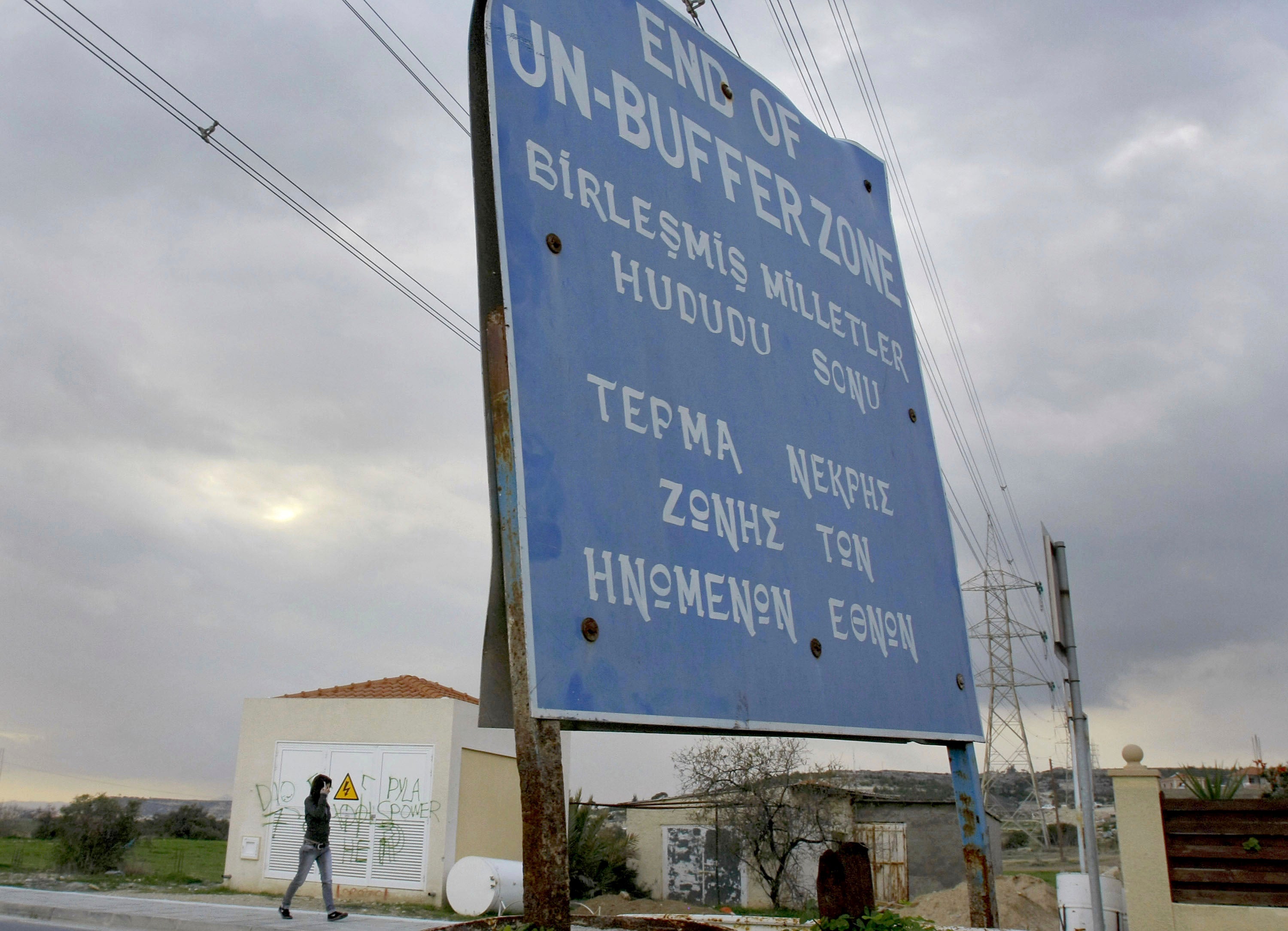Turkey says UN lost neutrality after world body condemns Cyprus roadwork, assault on peacekeepers
Turkey’s foreign minister has accused the United Nations of abandoning its neutrality

Your support helps us to tell the story
From reproductive rights to climate change to Big Tech, The Independent is on the ground when the story is developing. Whether it's investigating the financials of Elon Musk's pro-Trump PAC or producing our latest documentary, 'The A Word', which shines a light on the American women fighting for reproductive rights, we know how important it is to parse out the facts from the messaging.
At such a critical moment in US history, we need reporters on the ground. Your donation allows us to keep sending journalists to speak to both sides of the story.
The Independent is trusted by Americans across the entire political spectrum. And unlike many other quality news outlets, we choose not to lock Americans out of our reporting and analysis with paywalls. We believe quality journalism should be available to everyone, paid for by those who can afford it.
Your support makes all the difference.Turkey's foreign minister accused the United Nations of abandoning its neutrality on Tuesday, a day after the U.N. Security Council criticized construction work by Turkish Cypriots inside the buffer zone dividing Cyprus and condemned their assault on U.N. peacekeepers.
In a statement issued Monday, the Security Council described the construction of a road as a violation of the status quo that is contrary to council resolutions. The statement came at the end of emergency closed consultations by the council's 15 members.
Angry Turkish Cypriots last week punched and kicked a group of international peacekeepers that blocked crews working on a road that would encroach on the island’s U.N.-controlled buffer zone. The road is designed to connect the village of Arsos, in the Turkish Cypriot north, with the multi-ethnic village of Pyla, which is inside the buffer zone and abuts the Greek Cypriot south.
"We believe that with this move, the United Nations has lost its neutrality," Turkish Foreign Minister Hakan Fidan told reporters during a joint news conference with his Bulgarian counterpart.
Fidan maintained that Greek Cypriots had been allowed to go ahead with similar road construction projects.
“The road built by Greek Cypriots towards the Greek population in Pyla was never subjected to obstruction and condemnation by the United Nations,” he said. He accused the U.N. of acting “like a hawk” to block the Turkish Cypriots' project.
Earlier, the Turkish Foreign Ministry issued a statement rejecting the U.N. Security Council's condemnation, which is said was “divorced from the realities on the ground.”
Speaking after a Cabinet meeting late Monday, Turkish President Recep Tayyip Erdogan called the U.N. peacekeepers' action “unacceptable” and accused the force of bias against Turkish Cypriots.
Cyprus was divided into a breakaway Turkish Cypriot north and an internationally recognized Greek Cypriot south in 1974 following a Turkish invasion that was triggered by a coup aimed at uniting the island with Greece. Turkey maintains more than 35,000 soldiers in the Mediterranean nation ’s northern third. The Greek Cypriot south is a member of the European Union.
Since 1974, a U.N. peacekeeping force known as UNFICYP has supervised the de facto cease-fire and maintained a buffer zone between Turkish and Turkish Cypriot forces in the north and Greek Cypriot forces in the south.
The Security Council welcomed the halt in construction by the Turkish Cypriot side and the removal of equipment and personnel. It called on both sides to show flexibility and support efforts by the U.N. envoy “to negotiate mutually agreed development in the area concerned.”
The road would give Turkish Cypriots direct access to Pyla by circumventing a checkpoint on the northern fringe of a British military base, one of two bases that the U.K. retained after Cyprus gained independence from British colonial rule in 1960.
Greek Cypriots perceive the road’s construction as a move with a military purpose at a sensitive spot along the buffer zone, which spans 180 kilometers (112 miles).
Turkey has described the road as a “humanitarian” project for the Greek Cypriot and Turkish Cypriot residents of Pyla.